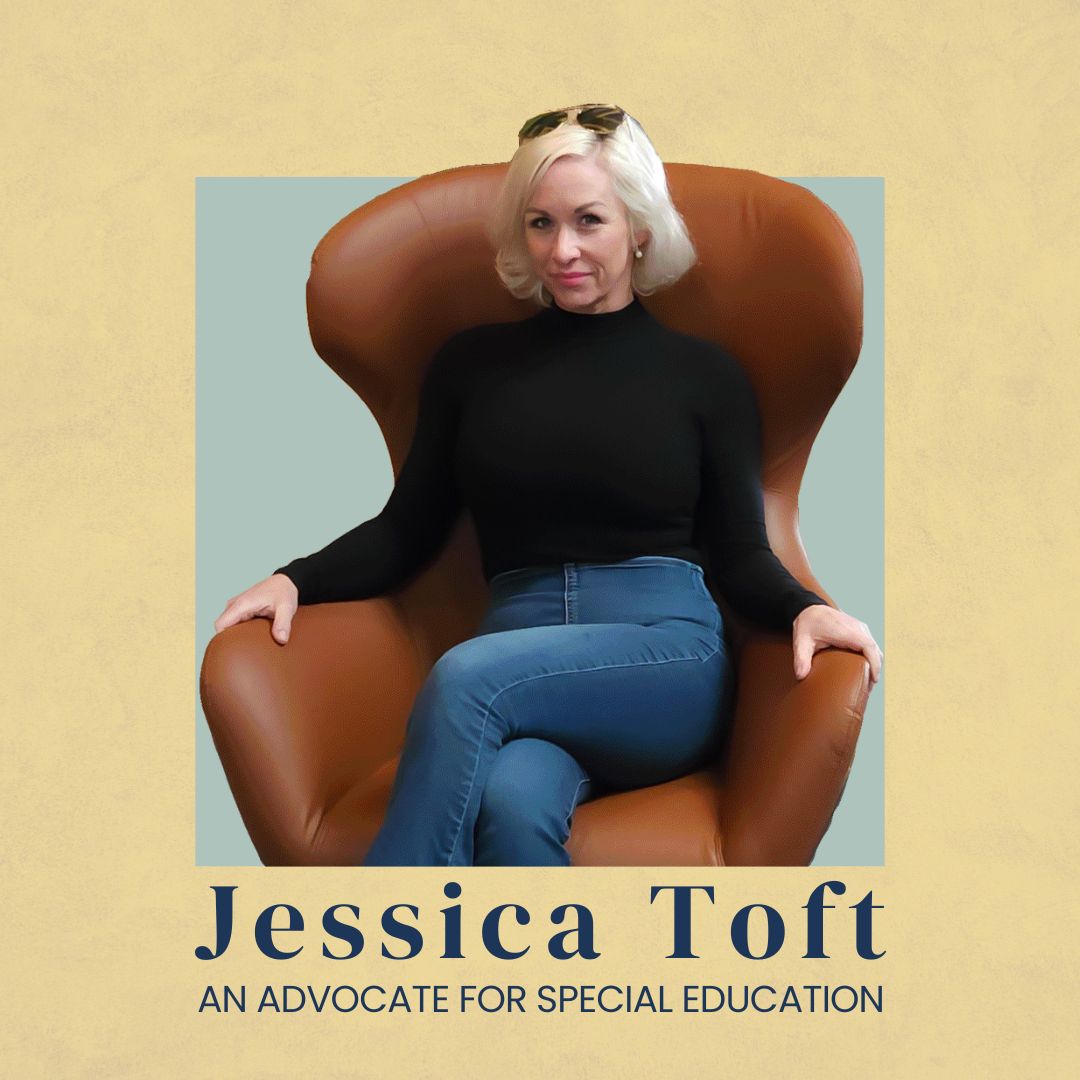CATEGORIES
Education and Life Skills | People We Admire | Social ImpactOverview:
- Jessica Linn Toft is a mother of two and an advocate for special education.
- Always remembering childhood lessons she received at a young age, she is motivated never to take things in life for granted.
- Jessica is passionate about finding solutions to the issues the world faces today.
- She is optimistic that the future of technology will help every person achieve their dreams through equal opportunities.
1. What was your childhood like and how did it shape who you are today?
I’m an only child. My dad worked for the Mariott, and my mom worked for Northwest Airlines in IT, so we traveled a lot. We would stay at beautiful places; however, we would fly standby. In the 90s, when you flew standby, you had to dress very conservatively. You couldn’t wear open-toed shoes, and had to wear tights too. It was like going to a Catholic mass on Sunday– and I was a child. I had to sit upright and not whine, no matter how long the flight was.
We moved a lot, and always lived paycheck to paycheck, so I know what it’s like to start and work your way up. I believe it’s important to know the efforts that go into creating things so that you truly appreciate them, and never take them for granted.
Being the only girl among male cousins toughened me up. I always preferred interactions with boys my age over girls. Up until recently, society always pitted women against women, and it was a competitive world for us.
Today, the advent of newer technology is leveling the playing field. It is enabling people who wouldn’t normally be able to create these amazing dreams. It’s beautiful, and I feel like it’s taken away the pressure by recreating culture everywhere. There are no more secrets. I think honesty and truth are how you break down a lot of walls.
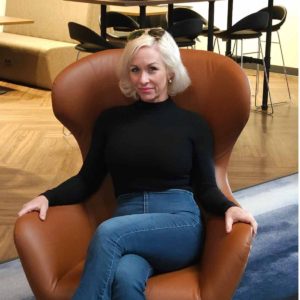
2. Tell us about your professional journey and how you got to the position you are in today.
In 2019 I decided I was going to create something for myself. It was for my daughters– they are the reasons I ran, operated, and managed the staff and management within childcare centers.
When my daughter started school, I took that time to focus on creating something for myself instead of for other people. I didn’t exactly know what I was creating, but I knew I was being drawn towards virtual, and I knew it was going to be in education. It seemed like a no-brainer since virtual education setups were already in place because of the pandemic, but the industrial challenges continued to get worse during all of it. There’s not enough well-trained staff, there are more health crises and mental health issues, and there’s not enough funding. There were so many more problems than before, and I wanted to find a solution. The kids deserve better—my kids deserve better.
So, I slowly connected with where I was being pulled in and trusted the process. While I was doing all of this, I was intentionally seeking God. There were so many changes that I was going through, and I needed a little bit of guidance and clarity. I was trying to find out what religion I was supposed to believe in, and who I was supposed to be listening to. I went to many different churches, experiencing life. It helped me determine what I did and did not believe in, and I found myself leaning more toward the spiritual end of things again. Understanding that we’re all connected is the most important thing and the only way for anyone to grow and thrive.
3. Is there anyone you admire or have seen as a role model?
I have to see and experience all the things for myself to truly know and understand them. So, it’s challenging for me to pick one person because, amongst all of these historical leaders who stand up for civil rights, there are always so many different variations. I find them all incredibly amazing.
I come across so many beautiful people every single day. I have a contact in Africa who is an educator. He’s working to develop an ecosystem that would help a large number of people who lack access to daily necessities.
He’s just a normal person with no book about him or anything like that. I just love connecting with real people who are doing great things. I don’t think those people are talked about enough.
4. What has been the greatest challenge in your journey and how did you overcome it?
Last year was probably the hardest year of my life. My daughter came home and told me about her friends at recess who would play this game called ‘Danger,’ and she was always ‘Danger.’ They would point and laugh at her and run away.
I started writing to her teachers, informing them about what was happening, and explained that my daughter was asking me to find someone who could help her through this because she doesn’t like it. She said that nobody liked her, but they ignored me and my concerns.
My daughter would come home upset, and they started to punish her in school as if she was the one who was causing the issue, even though I had explained to the school staff that my daughter wasn’t able to read the social cues– that this wasn’t a ‘game’ she was playing with the other kids.
My daughter started to change, becoming physical to her sister because she was really angry, and so, I started bringing her to therapy. The therapist recommended further assessment and encouraged me to continue advocating to the school on behalf of my daughter. However, the school didn’t like that much, it wasn’t a pleasant experience, and they ended up causing more harm.
So, I put my daughter on this year-long waitlist for Fraser, which was the best institution for her here in Minnesota. They assessed her, and she was diagnosed with ASD (Autism Spectrum Disorder), specifically on the high-functioning spectrum, so navigating social cues is not something she’s familiar with.
I believe this contributed to why it was harder for people to see what was going on with my daughter. Once she was assessed, I felt like I got a sense of power and authority to get the school to hear me.
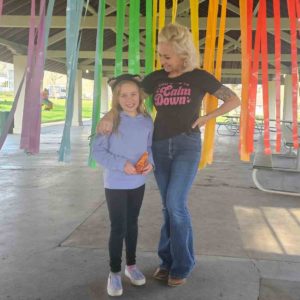
5. How do you balance your work and personal life and what is one thing you enjoy doing in your free time?
I am an artist. I take whatever I have, and create with it. In the town where I live, people frequently reuse and recycle things. If you get up early in the morning, you can find things kept on their driveway for others to take and use.
My front yard became like a personal creative project for me. I often drive around and see what people have left out that I could work with and repurpose. I started decorating my front yard with these items—and I ended up developing this famous yard. It’s really fun.
I also like painting. My mom’s an artist, her mom was an artist, so I enjoy that. During the summer, I set up lemonade stands with my daughters. Creating art and spending time with my family are what I enjoy the most.
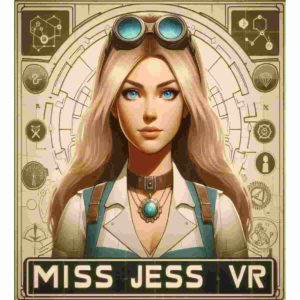
6. What are some ways in which you are creating a positive change in the world?
Right now, I’m working on organizing a fundraiser that would go to special education materials for the Dolly Parton fundraising for the literacy program. We partner with many nonprofits to give back to the community. Whoever comes into our lives and needs help, we always jump in to help.
This whirling world that we’re going through is people-centric and solution-centric. It’s about the development of relationships, finding how we can contribute and do good in the world. I believe in this both personally and professionally. Even education revolves around connection. It’s not about memorization; it’s about passion and being a part of a community.
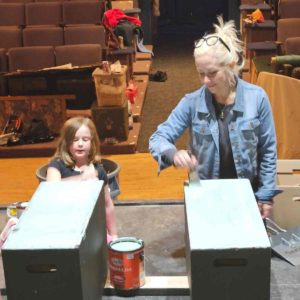
7. What do you think is the biggest concern for global youth today and how do you think it could be solved?
So many things. You talk about what they’re breathing, eating, drinking. Everything has food dye in it, which is just poison. And I’m pretty sure that sugar addiction in youth is also very real.
A couple of years ago, I had six massive fibroids removed. According to my research, they can all be tied back to the chemicals in the products we use on our bodies. We’re poisoning ourselves without any real alternative or solution in the current social set-up.
The world needs a refresh. Just looking around, we’re entering that era of the 90s and 70s. The generations are kind of aligning on beliefs. My mom and I went through very similar things, so we both now share a new commonality in our belief system that reaches a whole different level.
I believe mentorship and education are the solution. That’s how we’re going to change the world. It won’t be about influencers driving fancy cars and looking pretty on camera but not talking to you in real life. I think those times are done, and it’s going to be all about people organically inspiring each other.
8. What is a mantra that you live by and how does it help you on a daily basis?
I think the most important thing that I always have to remind myself, and is easily forgotten, is to let go and remember that I can’t control anything but myself. I have to accept what happens rather than seeking solutions or trying to prevent things that are out of my control.
I’m a solution-finder, and I like to prevent bad things from happening. I want everyone to be happy at all times, and if I can plan ahead so nobody has to feel bad or worry about anything, I would do that. I remind myself that I can’t control other people, the future, or anything but how I react. So, my mantra is to be like water and flow.
Conclusion:
Jessica Toft’s journey shows the power of empathy, awareness, and an intrinsic drive to create something. She aims to create a better system of education and give the children what they deserve. Her belief that education is rooted in connection guides her in creating an empowered community.

